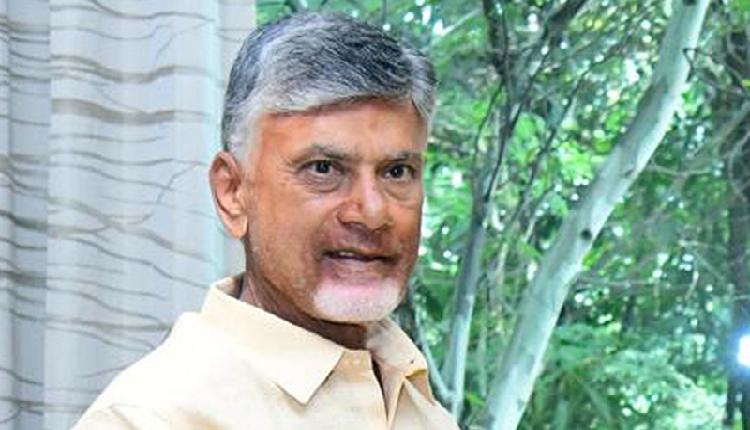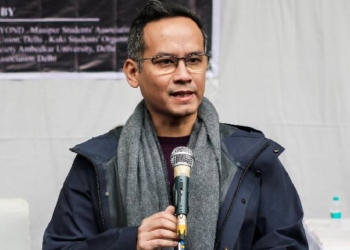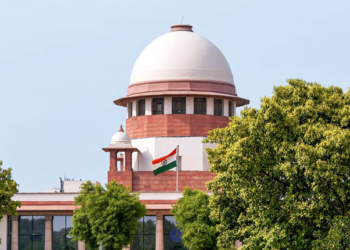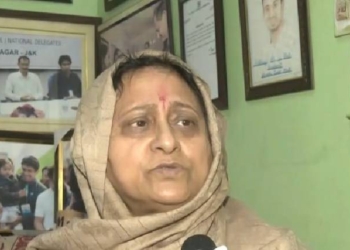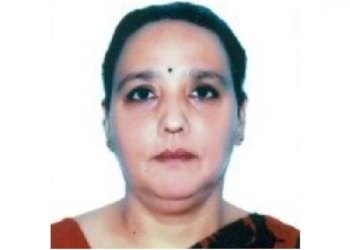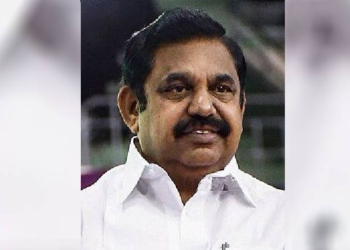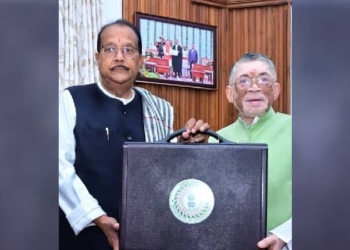Amaravati: Andhra Pradesh Chief Minister N. Chandrababu Naidu on Wednesday reiterated his resolve to build Amaravati as a world-class capital but admitted that restoring the investors’ confidence after the “destruction during the last five years” will not be easy.
He said he would have to talk to the Singapore government, which had prepared the master plan, and a consortium of Singapore companies, which had signed an agreement for the Amaravati Capital City Startup Project during the earlier TDP rule but then, the venture was cancelled by the previous YSRCP government.
Asserting that his government will live up to the people’s expectations by overcoming challenges and legal hurdles to build the state capital as per the earlier vision document and master plan, he, however, said he was open to new ideas and improved versions.
The Chief Minister was talking to media persons after releasing a White Paper on Amaravati, whose foundation stone was laid in 2016 when he was the Chief Minister.
He lashed out at his predecessor Y.S. Jagan Mohan Reddy, who stopped construction of Amaravati after coming to power in 2019 by mooting the idea of three state capitals.
“This is a case of one person destroying the future of the coming generations. We need to introspect if such persons should occupy a public office,” he said, adding that as a result of the previous government’s policies, investor confidence was lost and Andhra Pradesh’s brand image suffered.
“For example, the Singapore government. I need to talk to them. They may come or may not come. They have their own experience. They don’t need to lose money for us. There are hundreds of such countries and states for them,” he said.
Naidu said investors may have apprehensions about the future as the man responsible for the destruction of the last five years is still in politics. “They feel why they should take risks. They say you have a good track record but what about tomorrow? How can you give assurances,” he said.
The TDP chief said people need to ponder whether such a person is fit to remain in politics. “I am speaking for the future of five crore people of this state,” he said.
The Chief Minister, whose TDP is a partner in BJP-led NDA government at the Centre, said he would use all opportunities and take the help of the Centre to restart the works in Amaravati. He said he would talk to all investors including individuals, companies and institutions and reiterated his vision to create a world-class capital which boosts the image of the state and improves the confidence of the people.
“We need to restart the construction activity, restore the investor confidence, rebuild the brand image and resurrect the economy,” he said. The Chief Minister said if the original plan was implemented between 2019 to 2024, a world-class capital for the state would have been in place, 50,000 to 1,00,000 people would have been residing in the capital, seven lakh jobs could have been created during construction and Rs 2 lakh crore would have been added to the GDP. There would have been Rs 10,000 crore of income through state taxes every year with an increment of 15 per cent every year, he added.
There would have also been an increase in property prices and wealth generation across the state.
Naidu alleged that the previous government systematically weakened and destroyed Amaravati. Land acquisition notification for 1,197.30 acres was withdrawn, annuity for 2,903 farmers was stopped, pensions stopped for 4,422 families and the Rs 485.32 crore budget of the APCRDA lapsed.
The contract of Master Architect for Amaravati Government Complex (AGC) Norman+ Foster was cancelled. It was ordered to limit the civil works to Rs 3,000 crore out of the balance works of Rs 35,583.5 crore, while the YSRCP government complained to the World Bank and stopped the $300 million funding and also the Centre’s Rs 1,000 crore grant. He mentioned that 122 out of 130 land allottees, mostly top institutions in various sectors like education, health and hospitality, lost confidence.
He said due to systematic destruction, buildings remained unfinished and roads got damaged. Credit ratings of the Amaravati bonds were negatively affected.
“The pride and self-respect of Andhra Pradesh people shattered. There was a sharp depreciation in property prices. Wealth generation did not happen. It led to the migration of people from the state to other states as new job creation stopped. There was a loss of existing jobs as businesses moved out due to uncertainty,” Naidu said.
There was cost escalation, damages to the structure, cost of demobilisation of men and machinery, loss of jobs for the labour working, funds locked up in incomplete works, loss of revenue (GST & income tax), theft of materials and probable ill-effect on the structural stability due to long exposure to elements.
He recalled that the state government had taken recommendations of the K.C. Siva Rama Krishnan Committee as well as opinions of various stakeholders for choosing Amaravati as the state capital. On September 3, 2014, the Assembly passed a resolution to establish Amaravati as the state capital. It was centrally located and was planned as a liveable city, a self-financed project, and a growth engine.
Naidu claimed that the largest land pooling exercise in the world was taken up for Amaravati as 29,966 farmers voluntarily came forward to give 34,400 acres of land. Farmers and the APCRDA had entered into a binding agreement under which farmers were promised an annuity for 10 years at the rate of Rs 30,000 per acre for dry land and Rs 50,000 per acre for wet land, while there was a provision for an annual increment of Rs 3,000 per acre for dry land and Rs 5,000 per acre for wet land.
For each acre, farmers were given a returnable plot of 1,000 square yards (residential) and 250 square yards (commercial) for dry land, and 1,000 square yards (residential) plus 450 square yards (commercial) for wet land. Naidu also mentioned that the cost of the total project including tier I and tier II infrastructure and Amaravati Government Complex was Rs 51,687 crore. Tenders were called for a value of Rs 41,170.78 crore out of which all works were grounded and Rs 4,318.67 crore was paid. Rs 1,268.81 crore has to be paid as of date, says the White Paper.




